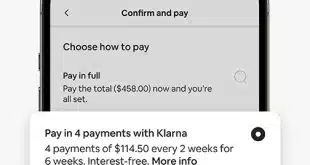Mastercard Inc. strengthened its hand in open banking on Monday, reaching an agreement to acquire European open-banking platform provider Aiia. Terms of the deal were not disclosed.
The acquisition is expected to strengthen Mastercard’s position as a provider of open-banking services in Europe. Mastercard established a presence in the business in the United Kingdom and Poland in 2019 through its partnership with Token. This latest deal also complements Mastercard’s 2020 acquisition of open-banking platform Finicity, which gave the card network a foothold in the U.S. market for the service, which allows financial-services providers to verify account ownership and funding.
Aiia has connections to more than 2,700 banks across Europe and processes more than 10 million bank logins and more than 1 million account-to-account payments every month for large banks and e-commerce payment gateways. Aiia’s customer list includes banks, challenger banks, fintechs, accounting-system providers, and payment companies.

“Finicity is principally a U.S. open-banking business, while Aiia is principally a European business, so it’s strengthening Mastercard’s open-banking proposition in its second-largest set of markets,” Eric Grover, principal at Minden, Nev.-based consultancy Intrepid Ventures and a close observer of the European payments market, says by email.
Once the deal closes, Mastercard expects to leverage Aiia’s connectivity in Europe to deliver the credit decisioning and credit-scoring applications of Finicity to European clients. At the same time, the connectivity of Finicity in the U.S. will help deliver the account-information services and payment applications of Aiia to U.S. clients, which Mastercard says will give users easier, faster, and safer access to open-banking services globally. Aiia provides a direct connection to banks through a single application programming interface that allows users to develop and launch new digital solutions.
“The value of open banking comes through empowering consumers and businesses to use their own data to obtain financial-services solutions simply, securely, and quickly. The addition of Aiia anchors our European open-banking efforts and allows us to continue to meet our customers where they are,” Craig Vosburg, chief product officer for Mastercard, says in a prepared statement.
“As open banking continues to ignite innovation, we’re committed to providing a unique set of technology platforms, data connectivity, and infrastructure combined with data-privacy and security principles,” Vosburg continues. “This will help fintechs and financial institutions innovate, gather feedback, and scale faster and more effectively than ever to power smarter, more meaningful experiences.”
Like Mastercard, Visa Inc. has been staking out a claim in opening banking, particularly in Europe. In June, Visa acquired Tink AB for $2.15 billion, five months after abandoning its attempts to acquire Plaid Inc., a major open-banking player in the U.S. market.
Visa’s and Mastercard’s acquisitions of open-banking technology have led to speculation that the networks are concerned open banking will siphon off transaction volume by putting consumers at the center of where and how their data is used to access credit, manage personal finances, digital wallets, and payments services. “Certainly, open banking or open-banking payments … threaten Mastercard’s traditional retail payments franchise,” Grover says. “Could it materially undermine traditional retail payments? I think that’s not likely, but it could chip away, especially if giant e-wallets, platforms, and merchants entice consumers to use it.”






